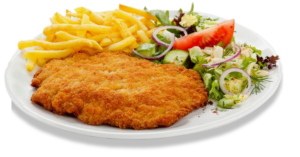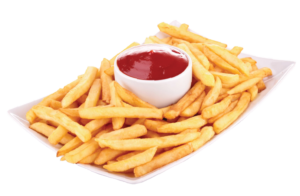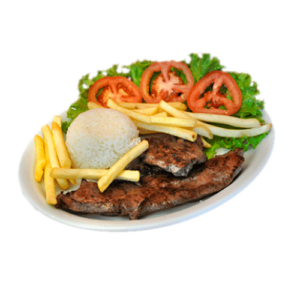What is a fact about French food? Why French Meals Are Usually Very Long?
Fact about French food

Fact about French food:
An interesting fact about French cuisine is that it has been recognized by UNESCO (United Nations Educational, Scientific and Cultural Organization) as an intangible cultural heritage. In 2010, “French culinary meal” was included in the Representative List of Intangible Cultural Heritage of Humanity.
This designation highlights the importance and cultural value of French fine dining, recognizing its unique place in the world’s culinary heritage. The traditional French meal is considered a sociocultural practice that emphasizes coexistence, the joy of taste, and the balance between people and natural products.
Key aspects of a French gourmet meal include:
Social aspect: Meals in France are considered a bonding experience, bringing family and friends together. Sharing meals is seen as a way to strengthen social bonds and promote conviviality.
Structure of the meal: The traditional French meal is organized around a structured sequence of courses, usually starting with an aperitif, followed by an appetizer, main course, cheese, dessert and finish with coffee. Each course has its own meaning and is carefully prepared.
Food and wine pairing: Pairing food with the right wine is a fundamental aspect of French cuisine. Wine selection enhances the flavor and overall dining experience. Respect for fresh and seasonal ingredients: French cuisine places great importance on using quality, fresh and seasonal ingredients. The emphasis is on the natural flavors and textures of the ingredients.
Culinary Skills and Techniques: French cuisine is renowned for its culinary techniques and skills, with an emphasis on precise preparation, cooking methods and presentation. French chefs are highly qualified and take great pride in their profession.
Cultural diversity: French cuisine reflects the diversity of regional cuisines across the country, each region has its own specialties and culinary traditions.
This recognition by UNESCO reaffirms the cultural richness and influence of French cuisine, highlighting its role as a community, cultural and artistic activity that brings people together to Appreciate the art of cooking and eating.


Why French Meals Are Usually Very Long:
Usually, dinners go on longer, especially if there are more than three courses. Even with the customary three-course meal of appetizers, entrées, and cheese or dessert, the French spend their time catching up with one another about their days’ events.
Depending on whether it’s a Sunday dinner or another special occasion where guests have been invited, a traditional French supper can last anywhere from two to four hours.
French culture places a high value on meals, which are also considered as opportunities to bond with loved ones and make wonderful memories over delicious food.
French meals are often thought of as long due to the culture’s emphasis on the pleasure of eating, socializing, and enjoying the culinary experience. This cultural aspect has deep roots and reflects the French art of living. Here are some factors that contribute to the length of a French meal:
Appreciation of food and gastronomy: French culture values cuisine and culinary arts. Meals are not only considered a necessity but also an art form to be enjoyed, enjoyed and celebrated. Taking the time to appreciate the flavor and texture of each dish is essential.
Rich culinary traditions: French cuisine is famous around the world for its sophistication and complexity. This often involves multiple courses, each meticulously prepared and presented. A traditional French meal may include an appetizer, main course, cheese, dessert and more. The variety of dishes and attention to detail enhance the dining experience.
Socialization and interaction: Meals in France are considered a social event, a time when family and friends gather together, chat and enjoy each other’s company. The leisurely pace allows for meaningful conversations, laughter and bonding over a shared dining experience.
Wine and drink pairings: The French take wine very seriously and often pair it with specific dishes to enhance the overall dining experience. Each dish can be paired with a different wine, and the process of tasting and enjoying the wine lengthens the meal.
Coffee Breaks: In French cuisine, it’s common to take breaks between courses, such as dessert or a light salad. These breaks help you rest, aid digestion and prepare your palate for the next dish.
High food standards: Catering is considered a good business in France. Restaurants and households strive to maintain high standards of service and presentation, which helps prolong the overall dining experience.
Attention to detail in preparation: French cuisine often involves complex preparation methods and precise techniques. From elaborate sauces to precise cooking times, each element of the meal is carefully considered and executed.


Culinary culture and education: The French are proud of their culinary culture. Culinary education is highly valued and aspiring chefs undergo rigorous training to master the art of cooking and haute cuisine. This commitment to excellence is demonstrated through long, carefully prepared meals.
In short, the French approach to cuisine is a blend of culinary artistry, social engagement and an appreciation of good food and wine. These cultural values contribute to the perception of French meals as long and leisurely, allowing individuals to fully immerse themselves in the dining experience.


